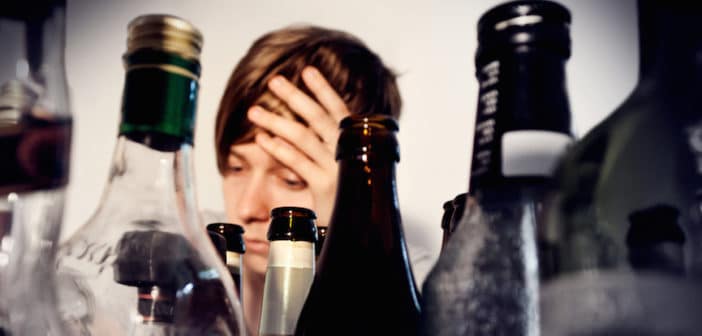This post was originally published on December 3, 2015.
Ah, the blackout. The eternal mystery of what the hell happened last night, where’s my left shoe, and who’s the stranger in my bathrobe? According to a recent article on the Australian site Techly, the National Institute on Alcohol Abuse and Alcoholism’s (NIH) has discovered that blacking out is far more common than most people realize, even among social drinkers.
Not So Rare
There are several reasons why people are in the dark about black outs: One, in cultures where excessive drinking is shameful, no one admits to them. Two, previous blackout studies only focused on middle-aged men who were hospitalized for alcoholism. So scientists concluded blackouts were a sign of long -term alcohol abuse.
But one-third of medical students the NIH interviewed said they’d blacked out at least once in their lives. Fifty-one percent of college students said the same, with 40% stating that they’d blacked out within the last year. And even though male college students pounded more booze at faster rates than women, women black out slightly more often, even when they’ve imbibed less. We don’t get equal pay, but with blackouts we’re right on the money. Thanks, body fat.
You’ve Gotta Hit “Record”
So what happens in a blackout? And what causes blackouts if not straight-up alcoholism, as claimed in all those 10-question pamphlets pushed at lushes over the years? According to the NIH study, it comes down to two things: how much you drink, and how fast. Deep within our brains is an essential little recording device, the hippocampus. It looks like a minuscule seahorse and it regulates emotions and memory, particularly long-term memory. When you throw too much booze too fast at the hippocampus, it stops “the formation of new memories…but does not damage already recorded memories.”
It’s sort of like the hippocampus simply can’t bear to watch you do strip karaoke at the office party. It doesn’t record the event, so the next day you wake up in blissful ignorance. Until the text messages start coming in.
Sledgehammer, Meet Hippocampus
The hippocampus doesn’t just refuse to record the embarrassing stuff, though. When awash in booze, it won’t record all kinds of minutiae like where your keys are, or that late night burrito.
So should we just chill and accept these social drinking blackouts college kids—and other casual drinkers—are having? Even the Techly article (from Australia, where, the writer admits, “drunkenness is celebrated”) is wary of alcohol’s effect on the brain. Although the hippocampus can shake damage off for a while, at some point blackout drinking leads to other problems with brain function. And scientists still don’t know quite when that happens, only that once blackouts start to occur, they do become more frequent. And according to the New York Times, heavy drinking at an early age “may undermine the precise neurological capacities needed to protect oneself from alcoholism.”
As the NIH report states (and this might be my favorite quote of the year), “If recreational drugs were tools, alcohol would be a sledgehammer.” Regular pints of vodka don’t do fine, delicate work within our brains. They storm the joint, breaking down walls and knocking over the furniture. Chronic abuse of alcohol can lead to shrinkage in brain volume, the alteration of gene expression and disruptions in brain blood flow. Maybe blacking out isn’t a sign of alcoholism—but I’d argue that a casual attitude towards blacking out could be. Who but an addict would be cool with losing hours of brain function in pursuit of a solid buzz?
Morning, Sunshine!
This new NIH study doesn’t say blackouts are good, simply that they happen. And just because plenty of social drinkers blackout doesn’t mean it’s okay. Plenty of people watch the Kardashians, but that doesn’t mean it’s a healthy long-term choice either.
As for those of us who no longer have to worry about blackouts, alcohol-related brain damage, or where the damn car is parked, we now can greet each day with a lot less fear and worry. And also greet whomever is in bed next to us with full knowledge of who they are.
Sponsored DISCLAIMER: This is a paid advertisement for California Behavioral Health, LLC, a CA licensed substance abuse treatment provider and not a service provided by The Fix. Calls to this number are answered by CBH, free and without obligation to the consumer. No one who answers the call receives a fee based upon the consumer’s choice to enter treatment. For additional info on other treatment providers and options visit www.samhsa.gov.





